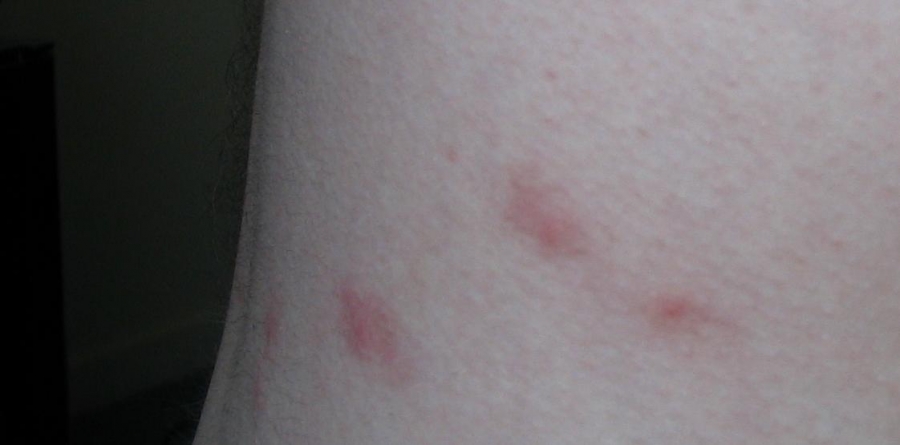Ever wake up in the morning with one or more red bumps that look like a typical ant bite? You can turn your bedroom upside down without finding a single ant. Nine out of ten times, these bites are caused by fleas looking for a fresh blood meal. Fleas can jump nearly a foot into the air, clinging onto bed sheets, pillows and blankets before making their way under the covers and onto your skin.
Why Flea Bites Swell
Flea bites typically swell as a direct result of the body’s response to the flea’s saliva. When a flea bites into a host, it injects saliva simultaneously. This saliva contains a number of proteins and antigens known to trigger allergic reactions in both humans and pets. The good news is that flea saliva alone isn’t going to cause any major health issues; the bad news is that it can harbor bacteria and other nasty microbes .
Depending on how your body responds to the bite (everyone is different), you may notice minimal swelling on the affected area, or it could turn into a large, itchy mound. Inflammation levels vary depending on how the individual’s body responds to the bite.
You can read more about flea allergy dermatitis (FAD) here.
Clean It!
The very first thing you should do after noticing flea bites on your skin is to clean the affected area. Even if it looks clean, there’s a strong change of bacteria lingering on the surface. Washing your flea bites with wash water and soap should kill most (if not all) of the bacteria.
Ice It!
After cleaning your flea bites, head over to the kitchen to make an ice pack. I know what you’re probably thinking: why do I need an ice pack for flea bites? Icing it will reduce inflammation by slowing blood flow. In addition, the cool sensation of an ice pack will soothe some of the pain and discomfort caused by the bite.
Take a Non-Steroidal Anti-Inflammatory Drug (NSAID)
If you suffer from severe FAD that’s accompanied with swelling, you should consider taking a non-steroidal anti-inflammatory drug (NSAID), such as aspirin or ibuprofen, once you notice flea bites on your skin. Of course, you should talk with your doctor if you are concerned about any potential side effects from taking a NSAID.
Do you experience severe swelling due to flea bites? Tell your story in the comments section below!

